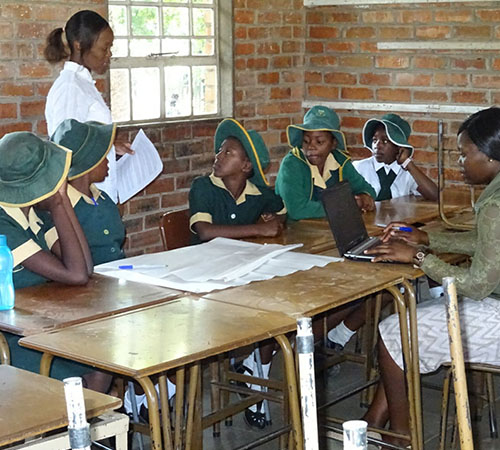
National Longitudinal Study On the Pathway of a Cohort of Primary and Secondary Aged Students to gain Deeper Understanding of the Process of Survival in the Zimbabwean Education System and the Experiences of those who Drop Out
Duration: July 2017 – December 2020
Description of Project: MDS is the local firm in a consortium comprising CIDT and Development Data that is undertaking a National Longitudinal Study On the Pathway of a Cohort of Primary and Secondary Aged Students to gain Deeper Understanding of the Process of Survival in the Zimbabwean Education System and the Experiences of those who Drop Out. The study includes a qualitative and quantitative longitudinal survey aiming to understand the factors and process for dropping out of school covering a cohort of 3780 students in 270 primary schools traced over a four-year period. The quantitative studies include identifying determinants of drop out, transition and progression in school at the learner, household, community and institutional levels using multivariate regression analyses. The qualitative studies explore these determinants in more depth by aiming to determine the pathway through which these determinants eventually lead to drop out, transition or progression in school. Tasks: manage the household and qualitative studies; analysis and reporting on the qualitative data; and providing recommendations for limiting dropping out and increasing transition and progression of girls and boys from different backgrounds in the country.
Tasks: The research exercise will be conducted through a baseline exercise, termly monitoring visits, a midline survey and an endline survey. With regard to transitioning from Primary to Secondary school the tasks of the consultant included;
- Examining transition rates and document the process;
- Investigate why the learners transition or drop out;
- Identify the variables that are most predictive of the risk of dropping out of primary school or transitioning to lower secondary school;
- Track the cohort from primary through to secondary education;
- For those girls and boys that drop out, explore the pathways they follow and their life experiences after leaving school;
- Examine performance of participants in selected subjects;
- Construct statistical models that assess students’ performance and progress over time;
- Examine the factors affecting school survival in secondary school;
- Identify the variables that are most predict of a respondent’s likelihood of staying in school;
- Study patterns and dynamics of dropping out;
- Identify the drivers and consequences of dropping out among individual respondents;
- Develop comprehensive and detailed profiles of a sub-set of study participants and analyse what effect, if any, the individual, community, school and contextual factors have on transition, retention and completion of primary and secondary education cycles;
- Document the processes used in the study in order to inform future practices
After the research document, MDS will develop recommendations for policy-makers to better monitor and improve transition to secondary and retention and completion rates at both primary and secondary school levels.

